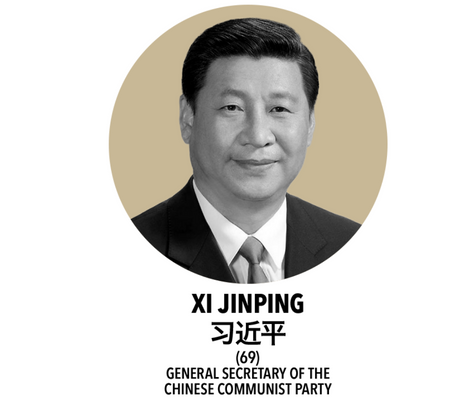General Secretary Xi strengthens his role with new Standing Committee lineup
This past weekend, China announced its new leadership at its once-every-five-years Chinese Communist Party plenum. This leadership change will have significant ramifications on the direction of China — both politically, militarily and economically.
China’s Communist Party announced its [the] new Standing Committee — China’s top seven most powerful men — who are all “FOX’s,” or “friends of Xi.” General Secretary Xi bypassed convention and installed his own allies in the Standing Committee, and many in the Politburo and the Central Committee, which will make up future generations of the leadership.
Here are five things to know about China’s new Party leadership:
- The FOX’s prevail. This team does not include any legacy factions from previous leaders, and all have a strong connection to the General Secretary. There is no clear successor to Xi in this lineup. Nor is it a young group. Xi has largely brought in his contemporaries who will have to retire in five years if retirement age norms hold. The youngest member is Ding Xuexiang who is 60 and, given the informal age restrictions, will be the only one still eligible to serve at the end of this five-year term. There is no new guard — only Xi’s guard.
- The role of the Party will strengthen. General Secretary Xi has made clear that the Party is the only means to govern the country. This new lineup includes strong Party loyalists and ideologues, such as Wang Huning, the political theorist, and Zhao Leji, who ran the personnel department and helped Xi move his allies through the government and Party systems. Zhao also oversaw Xi’s anti-corruption campaign. There are fewer members who are seen as having close ties with foreign business leaders, unlike Vice President Wang Qishan and Vice Premier Liu He, who will both be retiring.
- Standing Committee lineup foreshadows government lineup in March. The lineup of the new Party Standing Committee provides us with insights into the new government lineup to be announced in March. With Li Qiang likely to become the Premier, we expect to see the largest shake up of the economic team in recent history. And while Li and fellow Beijing Party Secretary, Cai Qi, both have experience managing significant cities or provinces where the private sector and foreign firms have played an important role in economic growth and job creation, the rest of the Standing Committee appear heavy on internal Party leadership but limited on experience or profile with Western business.
- Loyalty trumps diversity. Traditionally, there is at least one senior female in the leadership, usually serving as a vice premier in charge of culture or related issues. For the first time in 25 years, there is not a single woman on the Politburo, which means that there will not be a female at a senior level in either the Party or the government.
- New faces wait in the wings. Beyond the announcement of the Standing Committee, the lineup of the new Central Committee and Politburo gives us a sense of who is favored for government positions. New potential leaders in the government include Yin Yong and Yi Huiman (respectively Vice Party Chief of Beijing and head of the China Securities regulator) to join the People’s Bank; Qin Gang, current Ambassador to the United States to become Foreign Minister; and He Lifeng, now head of the powerful National Development and Reform Commission, will likely take on Vice Premier Liu He’s portfolio of the economy and, perhaps, also finance.
